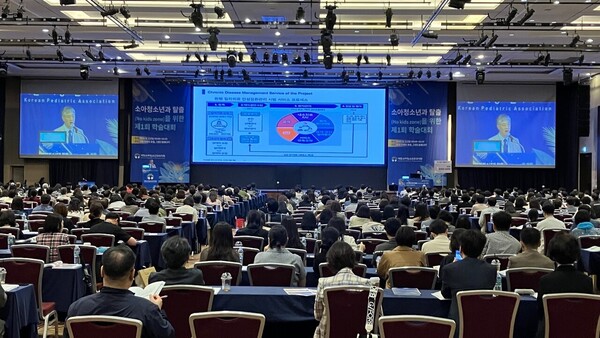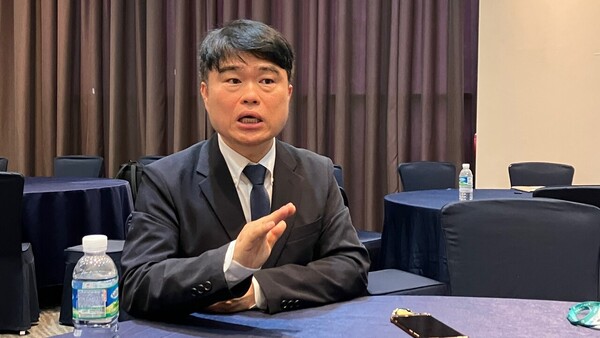
As pediatricians find it extremely difficult to stay afloat due to chronic unprofitability amid Korea’s ultra-low birth rate, the Korean Pediatric Association (KPA) hosted the “1st Conference for the Escape of Pediatrics” in Seoul, Sunday, to help them transition to more lucrative areas such as cosmetics and pain medicine.
The lectures at the event included key points of botulinum toxin (BTX) treatment, practical diagnosis and treatment of adult asthma using pulmonary function tests, diagnosis and management of diabetes, strategies for business expansion in the global healthcare market, practical diagnosis and treatment of varicose veins, and practical application of obesity treatment.
A total of 719 pediatricians registered for the conference, which featured lectures mostly on chronic disease management and skin aesthetics for adults.
The high attendance reflects the difficult reality of Korean pediatricians hit hard by the shrinking population of pediatric patients and low medical reimbursements.
Earlier in March, the KPA held a press conference and threatened to shut down pediatrics and transition to adult care, saying the average income of pediatricians decreased by 28 percent in the past decade.
One pediatrician who has been running a clinic for 10 years said at the conference that the situation in Korea is “getting to the point where pediatricians have no choice but to switch to adult care.”
"I've been barely making ends meet during the two years of Covid-19 without taking home any money,” he said, sighing. “There are fewer tertiary hospitals and emergency rooms to send children to.”
He said he felt sorry for the situation where pediatricians try to learn other medical specialties to keep their clinics open.
Lim Hyun-taek, president of the KPA, whom Korea Biomedical Review met at the conference, emphasized that the government should take immediate measures to save the collapsed medical infrastructure of pediatricians in the community.

The closure rate of small pediatric clinics has been plummeting, causing more than half of the community pediatric medical infrastructure to collapse, Lim said.
In the past, a pediatrician would work as a paid doctor after obtaining a specialty license.
Now, however, pediatricians are moving to convalescent hospitals or changing their career path to pain medicine and aesthetics, he said.
What’s worse is that some interns applying for pediatrics department this year have dropped out of the program, he noted.
There could be a terrible situation where the children of Korea, which is called a medically advanced country, could lose access to healthcare, he warned.
In particular, he called for a legal and institutional system to protect doctors from lawsuits. The Ewha Womans University Mokdong Hospital case -- where doctors and nurses were sued for the 2017 death of four newborns at the hospital -- was a direct cause of the pediatrics department becoming a shunned specialty, he said.
"The reason why people give up practicing pediatrics is because there is no legal protection. The Ewha Mokdong Hospital incident also had a big impact,” he said.
Related articles
- Wandering around ERs? Don’t blame doctors but change the system first.
- PICUs vital for reducing mortality in critically ill children, yet facing shrinking numbers
- Top pediatric cardiologist laments politics’ ill effects on medical sector
- President Yoon orders expansion of 24-hour pediatric emergency care system
- ‘CPR mortality in Korean children rose due to shortage of ICUs, pediatricians’
- Dermatology, general practitioners’ favorite specialty in opening clinics
- ‘I can’t do this anymore.’ Pediatrician closed clinic due to parental complaints.
- Pediatricians push for law guaranteeing health rights for children, adolescents
- Pediatricians' group to sue mother for sending 9-year-old to clinic alone

